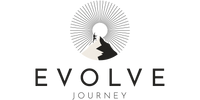What is learning by questions?
Learning by questions, often referred to as the "Question-Driven Learning" approach, is a learning method that places a strong emphasis on asking questions as a means of promoting active learning and critical thinking.
In this blog post we will explore how to use questions as a powerful method of self-improvement.
You’ve probably received a vicious answer to a question before in your time. Your face crumpled, or depending on your manner, you threw back some expletives. You're then met with a nonchalant shrug of the shoulders and something like, ‘ask a silly question, get a silly answer’.
Those sarcastic dicks aside, what if we could ask great questions? If we could build this skill. What would our lives look like? … Great question.
Sometimes to get a solution to the problem, we must begin by asking different questions.
“If I would have asked people what they wanted, they would have said faster horses.” Henry Ford
By asking different questions, Ford was able to change the world. If only he had asked himself, ‘how can I make these cars powered by electric?’
You can use this technique to improve your mental health. You can ask yourself questions to uncover whether it is rational and reasonable to feel the way you do. To understand if an emotion is fleeting. If it's more serious, you can use it to come up with solutions to the challenges you’re facing.
Questions will help you reframe things in your mind. If they are the right questions, they will help you prioritise your actions.
You might be asking yourself, what else are questions good for? Damn, we’re getting good at the question game.
Research shows children exposed to lots of questions tend to have higher levels of intelligence and language development.
There are quite a few theories on why but the one I gravitate towards is the Zone of Proximal Development.
What is the Zone of Proximal Development?
Psychologist Lev Vygotsky’s theory suggests that children learn best when they have support that is just beyond their current level of ability.
By asking questions that are challenging but still within a child's "zone of proximal development," we can help to scaffold children's learning and promote cognitive and language development.
How can you use this knowledge to improve your own skills?
Talking of skills. Conversation is supposedly a dying art.
Any awkward, clunky social interaction will tell you it requires skill to have good conversations, especially with strangers or people you don’t share much common ground with.
Questions are the answer here.
A great place to start is by consciously asking open-ended questions. It's not a catch all but you’ll see a big improvement by starting questions with "why", “how” or “what”.
What is the FEW conversation method?
Another cool technique is using the FEW method for conversations. This stands for facts, emotions, and why.
To get the conversation flowing, you can start by obtaining facts. For example, ‘Are you working on anything interesting at the moment?’
Then you would move into emotions with your next question. Go open-ended this time. ‘How’re you liking it?’ ‘What’s the biggest challenge?’ as examples.
Then once you’ve really listened to the response, you can make the connection on an emotional level.
Next is where the conversation gets into interesting with the why.
“What makes you want to do that kind of work?” Or, “Was there something that when you were younger inspired you to get involved with this kind of work?’
At any point, you’re at a loose end, and you feel the conversation getting stale. Start again with FEW, and you will develop some good conversations and deeper connections.
What questions could you ask yourself?
